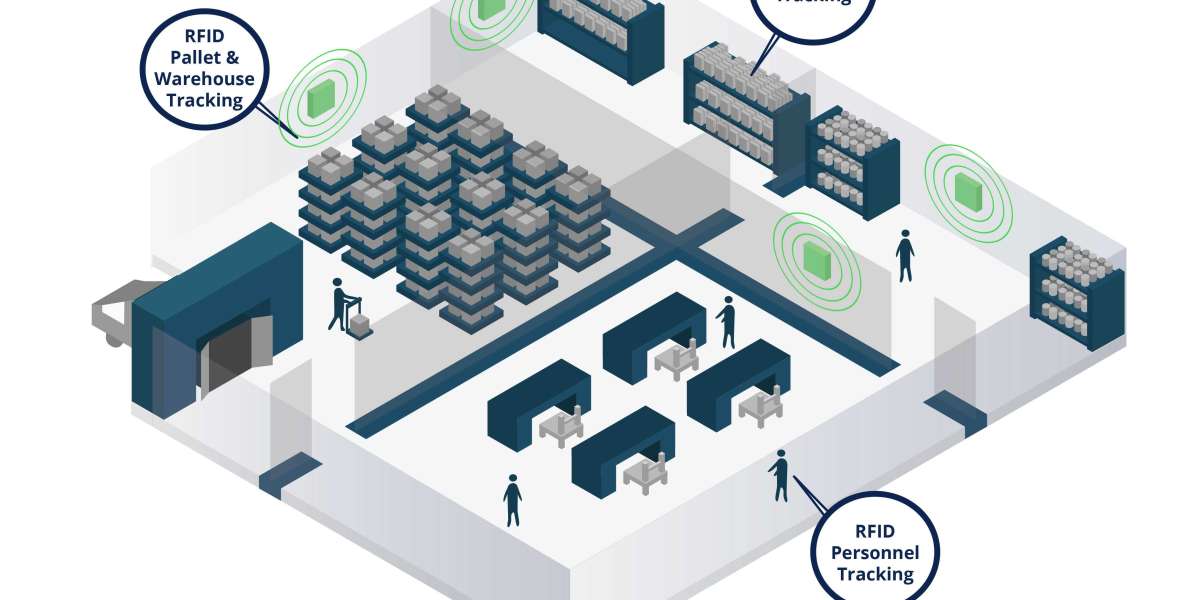In the fast-paced world of business, where every second counts and precision is paramount, managing assets can be a challenging yet critical task. This is where the revolutionary technology of RFID (Radio-Frequency Identification) tags steps in, transforming the way organizations track and monitor their valuable assets.
Unlocking the Potential of Asset Tracking RFID Tags
Streamlining Operations: Asset tracking RFID tags enable organizations to streamline their operations seamlessly. With RFID technology, businesses can automate the process of asset management, reducing manual errors and optimizing resource utilization. Real-time data capture ensures accurate insights into asset location, status, and movement.
Enhanced Visibility: The ability to track assets in real-time provides unparalleled visibility into the entire lifecycle of each item. RFID tags allow businesses to monitor the movement of assets throughout their facilities, offering insights that contribute to informed decision-making and improved operational efficiency.
Efficient Inventory Management: Say goodbye to tedious manual inventory counts. RFID tags empower businesses to conduct swift and accurate inventory checks, minimizing the risk of errors and ensuring that stock levels are always up-to-date. This not only saves time but also prevents stockouts or overstock situations.
Cost Savings: Implementing RFID-based asset tracking systems can result in significant cost savings over time. By optimizing asset utilization, reducing the need for manual labor in tracking and managing assets, and preventing losses or theft, organizations can achieve a more efficient and cost-effective operation.
Asset Security: Security is a top priority for any business. RFID tags provide an added layer of security by allowing organizations to monitor the movement of assets in restricted areas. Unauthorized access triggers instant alerts, enabling swift response to potential security breaches.
Compliance and Reporting: Industries with strict compliance requirements, such as healthcare or manufacturing, benefit immensely from RFID-based asset tracking. The technology ensures accurate record-keeping, making it easier for businesses to comply with regulatory standards. Moreover, it simplifies the process of generating detailed reports for audits or analysis.
Implementing RFID for Asset Tracking – A Seamless Transition
Integration with Existing Systems: One of the key advantages of RFID technology is its compatibility with existing systems. Whether businesses use Enterprise Resource Planning (ERP) software or other management tools, RFID solutions can be seamlessly integrated, minimizing disruptions and maximizing the return on investment.
Scalability: As businesses grow, so do their asset tracking needs. RFID systems are inherently scalable, making it easy for organizations to expand their tracking capabilities without overhauling their entire infrastructure. This scalability ensures that RFID remains a viable solution for businesses of all sizes.
User-Friendly Solutions: Contrary to common misconceptions, implementing RFID-based asset tracking is not overly complex. User-friendly interfaces and intuitive software make it easy for employees at all levels to adapt to the new system. Training requirements are minimal, ensuring a smooth transition for the entire workforce.
Embracing the Future of Asset Management
In a world where efficiency, accuracy, and security are non-negotiable, asset tracking RFID tags emerge as a game-changer for businesses seeking to stay ahead of the curve. The benefits – from streamlined operations to enhanced security – position RFID technology as an invaluable tool in the arsenal of modern organizations, poised to drive success in an ever-evolving business landscape.






